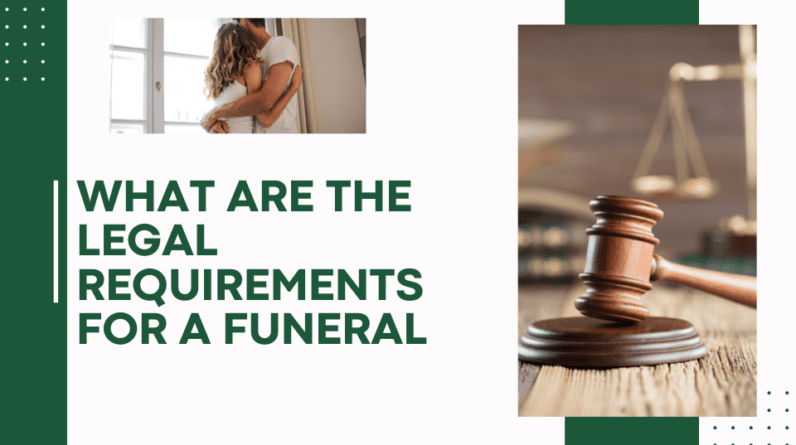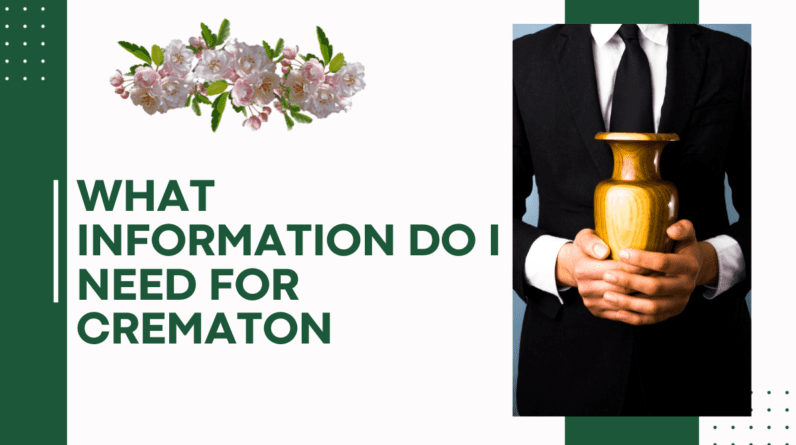
If you find yourself mourning the loss of a loved one in Melbourne, FL, you may be wondering about the process of embalming. The question that often arises during these difficult times is whether it’s necessary to embalm the deceased. Thankfully, in Melbourne, FL, embalming is not a legal requirement unless certain circumstances arise. This article will explore the guidelines surrounding embalming in Melbourne and provide you with the information you need to make an informed decision during this challenging period.

When is embalming required?
Legal requirements
In the majority of cases, embalming is not legally required when someone passes away. However, there are certain circumstances when embalming is mandatory. These typically include cases involving infectious diseases or when the deceased is being transported across state lines. Each state has its own specific regulations regarding embalming, so it is important to familiarize yourself with the laws in your area to determine if embalming is required.
Religious and cultural considerations
Religious and cultural beliefs also play a significant role in determining whether embalming is required. Some religions, such as Judaism and Islam, have specific guidelines or restrictions regarding embalming. It is important to consult with a religious or cultural leader to understand the requirements and customs associated with the handling of the deceased according to your beliefs.
Alternatives to embalming
Direct burial
If embalming is not required or desired, a direct burial is a viable alternative. With direct burial, the body is interred shortly after death without undergoing embalming or a funeral service. This option allows for a more natural and simple approach to the final disposition of the deceased. It is important to check local regulations and cemetery requirements before opting for a direct burial.
Direct cremation
Another alternative to embalming is direct cremation. With direct cremation, the body is cremated shortly after death without undergoing embalming or a viewing. This option provides flexibility in terms of memorialization and allows for the ashes to be kept, scattered, or buried according to personal preference. It is important to consider any religious or cultural beliefs surrounding cremation before choosing this option.
Embalming process
What is embalming?
Embalming is a process that involves the preservation and restoration of the deceased’s body. It is typically performed by a trained professional, such as an embalmer or mortician. The purpose of embalming is to temporarily delay the natural decomposition process, allowing for an open-casket viewing or a more extended period between death and the final disposition.
How is embalming done?
The embalming process usually begins with the removal of blood and bodily fluids from the deceased’s body. This is done through a process called arterial embalming, where embalming fluid is injected into the arteries. Additionally, the body may undergo cavity embalming, where the internal organs are treated with a preservative fluid. The embalmer may also apply cosmetics and use various techniques to restore the deceased’s appearance.
Benefits of embalming
Embalming offers several benefits, particularly when it comes to funeral services and viewings. It allows loved ones to have a final opportunity to see and say goodbye to the deceased. Embalming can also help preserve the body’s natural appearance, providing comfort and closure to family and friends. Moreover, embalming can aid in the prevention of the spread of infectious diseases, ensuring the safety of those who come into contact with the body.
Limitations of embalming
While embalming has its advantages, it is important to consider its limitations. Embalming only provides temporary preservation, and over time, the body will still undergo natural decomposition. Additionally, embalming may not be suitable for certain cases, such as advanced decomposition or certain religious or cultural practices that prohibit the use of embalming fluids. It is essential to discuss these factors with a funeral professional to determine the best course of action.
Cost of embalming
Embalming fees
The cost of embalming can vary depending on various factors, such as the funeral home, location, and additional services required. Embalming fees typically cover the professional services of the embalmer, the materials used during the process, and the use of the funeral home’s facilities, such as the preparation room. It is advisable to inquire about the specific embalming fees from multiple funeral homes to ensure an accurate comparison.
Additional expenses
In addition to the embalming fees, there may be additional expenses associated with the funeral service and burial or cremation. These can include the costs of a casket or urn, transportation of the deceased, cemetery fees, and any memorial or funeral arrangements. It is essential to carefully consider these expenses and create a budget to ensure that all aspects of the funeral service can be accommodated.
Exceptions to embalming requirement
Certain circumstances
While embalming may not be legally required in most cases, there are certain circumstances where it is necessary. If the deceased had an infectious disease or died under suspicious circumstances, embalming may be mandated to ensure the safety of those handling the body and attending the funeral. Additionally, if the deceased is being transported across state lines, some states may have specific embalming requirements.
Specific funeral wishes
Ultimately, the decision to embalm or not may depend on the specific funeral wishes of the deceased or their family. If the individual expressed a preference for embalming or had specific instructions in their will or prearrangement, these wishes should be honored. The funeral home can provide guidance and assistance in fulfilling these requests, ensuring that the funeral service aligns with the deceased’s wishes.
Choosing a funeral home
Research funeral homes
When selecting a funeral home, it is important to thoroughly research and evaluate different options. Consider factors such as reputation, years of experience, and the range of services provided. Look for a funeral home that is licensed and has a positive track record in the community. Personal recommendations from friends, family, or healthcare professionals can also be helpful in narrowing down the choices.
Ask for pricing and options
When contacting funeral homes, request detailed pricing information and a breakdown of the services they offer. Compare the prices and options provided by different funeral homes to ensure that they align with your budget and preferences. It is important to ask about any additional charges or fees that may apply, as this can significantly impact the overall cost.
Consider customer reviews
Customer reviews and testimonials can provide valuable insights into the quality of service provided by a funeral home. Take the time to read reviews and consider the experiences of others who have used the services of the funeral home you are considering. Positive feedback and recommendations can help give you confidence in your decision, while negative reviews may indicate potential issues or concerns to be aware of.
Preparing for the funeral service
Selecting a casket or urn
If you have opted for a traditional burial or cremation, choosing a casket or urn is an important decision. It is essential to consider factors such as material, style, and price when making this choice. Funeral homes typically offer a range of options to suit different preferences and budgets. Take the time to view and compare different caskets or urns to find one that best honors the deceased.
Deciding on a viewing
A viewing, also known as a visitation or wake, allows family and friends to pay their respects to the deceased. If you have chosen to have a viewing, it is important to consider the logistics and timing. Determine the location, date, and duration of the viewing, and communicate this information to loved ones. Additionally, discuss any specific guidelines or requests regarding the behavior and attire of attendees.
Arranging transportation
Transportation is a critical aspect of the funeral service, particularly if the deceased needs to be transported to a different location or cemetery. Coordinate with the funeral home to arrange for the necessary vehicles, such as hearses or family cars, to ensure a smooth and dignified transportation process. It is important to communicate any specific requirements or preferences to the funeral home to ensure that they are met.
Legal requirements and documentation
Dealing with the death certificate
Obtaining a death certificate is a crucial step after the passing of a loved one. The death certificate serves as an official document that records the cause, date, and place of death. Funeral homes can assist in the process of obtaining the death certificate, which is typically issued by the local government or vital records office. The number of certified copies needed may vary depending on the individual’s affairs and financial matters.
Obtaining a burial permit
In some cases, a burial permit is required before a body can be interred or cremated. This permit ensures that the deceased is being laid to rest in compliance with local regulations. Funeral homes typically handle the process of obtaining a burial permit on behalf of the family. It is important to check with the funeral home or local authorities regarding any specific requirements or documentation needed for the permit.
Personal considerations
Grieving process
The loss of a loved one is an emotionally challenging experience, and it is important to take the time to grieve and process the loss. Surround yourself with supportive friends and family who can provide comfort during this difficult period. Additionally, consider seeking professional grief counseling or attending support groups to help navigate the grieving process.
Honoring the deceased’s wishes
When making decisions regarding the funeral service, it is important to consider and honor the wishes of the deceased. Take into account any prearranged plans, instructions left in a will, or conversations about the individual’s desires for their final arrangements. By honoring their wishes, you can ensure that the funeral service is a meaningful tribute to their life.
Support from friends and family
During this challenging time, it is essential to lean on your support system. Reach out to friends and family for emotional support, assistance with funeral arrangements, or even simple tasks such as preparing meals or running errands. Accepting help from others can alleviate some of the burdens you may be experiencing and allow you to focus on the grieving process.
Conclusion
When faced with the loss of a loved one, navigating the decisions surrounding embalming, funeral arrangements, and legal requirements can be overwhelming. By understanding the legal and cultural considerations, exploring alternatives to embalming, and carefully selecting a funeral home, you can ensure that the final arrangements honor the wishes of the deceased and provide comfort to family and friends. Remember to take care of yourself during this difficult time and rely on the support of loved ones as you navigate the grieving process.






